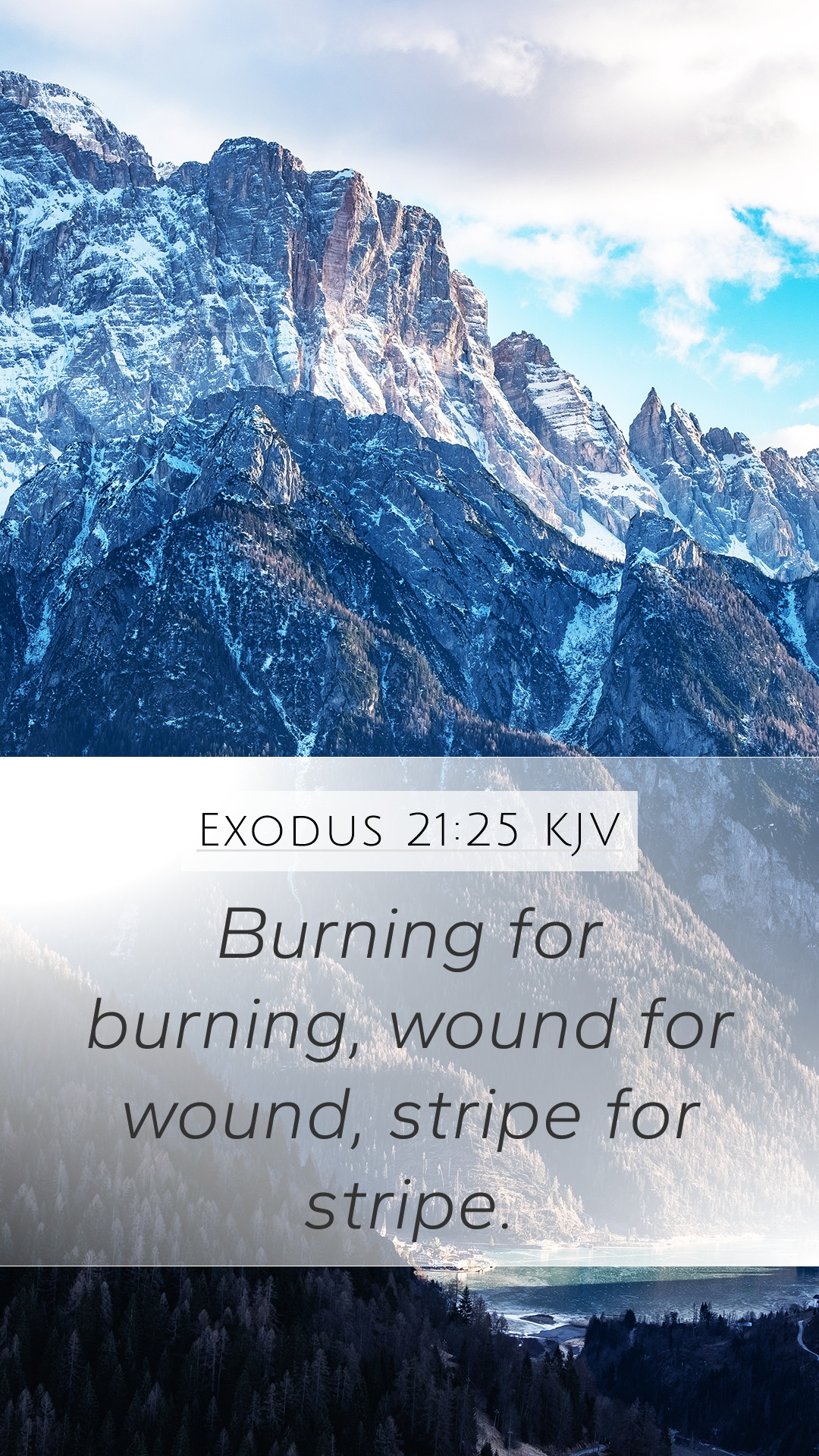Understanding Exodus 21:25
Exodus 21:25 states:
“Eye for eye, tooth for tooth, hand for hand, foot for foot.”
This verse is part of the Mosaic Law, which set forth guidelines for justice in ancient Israel. Below, we will explore the meaning, interpretations, and implications of Exodus 21:25, utilizing insights from various public domain commentaries.
Overall Context and Historical Significance
In the context of Exodus, this law addresses retribution and justice. This provision was established to limit vengeance to what is just and proportionate, preventing escalating cycles of violence. Previous laws set the groundwork for a society governed by justice, aimed at protecting individual rights and maintaining order.
Commentary Insights
Matthew Henry's Commentary
According to Matthew Henry, this verse reflects the principle of proportional justice, illustrating that the punishment should fit the crime. He highlights that this commandment was meant to curb excessive retaliation, reminding the Israelites that vengeance should not lead to greater harm. Instead, the emphasis is on fairness and the protection of community integrity.
Albert Barnes' Commentary
Albert Barnes provides a thorough analysis, noting that this verse establishes clear boundaries on retributive justice. Barnes interprets this command as a foundational legal principle aimed at ensuring justice was meted out without tyranny or overreach. He emphasizes that God’s laws were not to encourage retaliation but rather to promote an orderly society where rights were recognized and honored.
Adam Clarke's Commentary
Adam Clarke expands on the idea of equity in the judicial system. He explains that this principle should lead to a humane approach in administering justice. Clarke underscores the importance of rationality and fairness in the application of law, arguing that the intention of these laws was to prevent emotional and disproportionate responses to wrongs done. His insights remind us that while this law appears stern, the spirit behind it sought to ensure that justice was equitable.
Applications in Modern Context
While Exodus 21:25 may seem harsh by contemporary standards, its core message speaks to the heart of justice in society today. The verse represents broader principles that can be applied in various ways:
- Justice Systems: Understanding the significance of proportionality in legal proceedings.
- Conflict Resolution: Encouraging resolution approaches that maintain balance and fairness.
- Personal Conduct: Reflecting on our responses to wrongs and ensuring they remain within just bounds.
Related Scripture References
This verse correlates with other scripture, reinforcing the principles of justice and fair treatment:
- Leviticus 24:19-20: Similar stipulations on just retribution.
- Matthew 5:38-39: Jesus’ teaching on turning the other cheek, contrasting the law's command with a call for deeper love.
- Romans 12:19: Encouragement to leave vengeance to God, highlighting the New Testament interpretation of justice.
Conclusion
Exodus 21:25 serves as a powerful reminder of the balance of justice. It speaks to both historical standards and rich applications in our daily lives. By studying this verse, we enhance our understanding of biblical justice, help apply its lessons to modern contexts, and engage in better Bible study practices.
For those seeking comprehensive Bible study insights on what specific verses mean, exploring commentaries like those of Matthew Henry, Albert Barnes, and Adam Clarke can enhance your Bible study experience. Understanding Scripture in its entirety and historical background is crucial for grasping the meaning of Bible verses and their application today.


